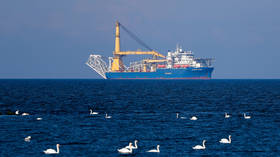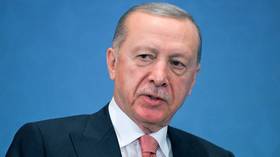Western sanctions won't stop demand for Russian oil – Moscow

Russian oil will still be in high demand despite the latest EU sanctions on the country’s exports, Deputy Prime Minister Aleksandr Novak said on Tuesday.
His statement comes as the EU introduced a ban on Russian seaborne crude along with a $60 price cap. The latter measure has received support from G7 nations (Canada, France, Germany, Italy, Japan, the United Kingdom and the United States) and Australia.
According to Novak, this type of interference in market instruments will “certainly affect” the work of Russian companies and sales, but Moscow does not see “any tragedy” in this.
“Global consumption, economic growth in the world must be provided with energy resources. There is not much oil in the world, and Russian oil has always been and will be in demand. Yes, supply chains will change,” Novak explained.
By imposing a price cap, Western countries will only trigger further energy inflation due to scarce supply, the minister said, adding that Russia views these types of non-market mechanisms as unacceptable.
“This can only lead to a global decline in investment and a future shortage of relevant resources. This, in turn, will cause an even greater increase in prices, which we are seeing, including the gas markets, for example, where there was an artificial decision to limit long-term contracts,” Novak said.
The official did not rule out a decline in Russian oil production amid the uncertainty following the sanctions, but said that it would not be big, adding that Russia “is doing everything to ensure that the situation is stable.”
The deputy PM noted that Russian oil and gas condensate production rose 2.2% from January to November in annual terms, to 488 million tons. Condensate output in Russia averaged 10.91 million barrels per day in the reported period, according to Reuters’ calculations.
For more stories on economy & finance visit RT's business section













